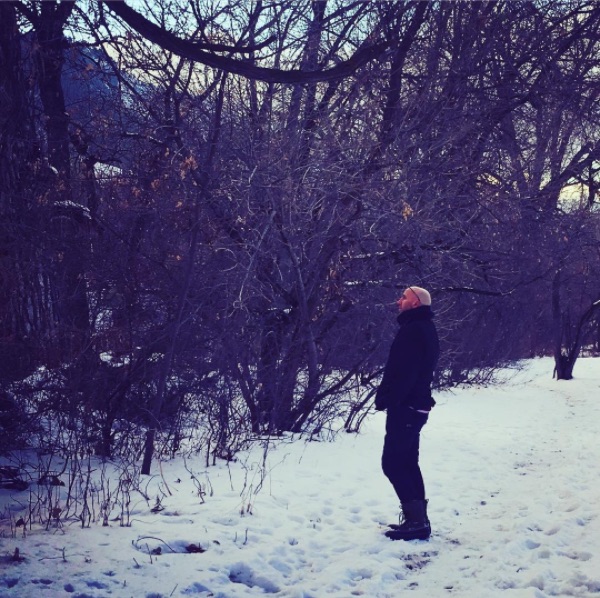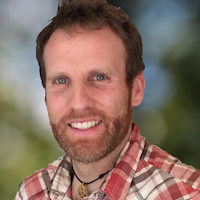Over and over, I get emails from folks asking different versions of the same question:
I am hurting, how can I feel better?
I am scared about what’s going on, how can I find my center?
I want to change the world, how can I make a difference?
The same answer comes again and again: we must each come back to the simplest level of life (our own), for it is the only place we can really do much, anyway.
These are five practices we can do right now—before anything changes. They allow us to author real transformation in ourselves, our families, our communities and our world.
Today, we start at the roots with five practices that will make all the difference:
1. Feel sad.
The anger that fuels violence and abuse at the collective and personal levels is, at its root, unmetabolized grief.
Anger arises to protect sadness. The deeper the sadness, the greater the anger.
Each of us carries deep sadness within us that we haven’t yet found the courage and support to face. If it remains unmetabolized, then it continues to fuel the collective grief and anger that will keep coming back to visit us.
So we can call our closest friends, gather our family or go alone to a quiet place, and feel the sorrows of our life. The moments of betrayal, loss, death—we find them in our body as sensations. This part is really important. We don’t just think about them; we feel them. If we come back to this place often, the well of sadness will gradually begin to recede, and we will feel free.
2. Forgive someone with whom we have a grievance.
All suffering is a victory of separation. It is only when we feel estranged from our fellow human beings that they become objects we are willing to violate or abuse. The antidote to separation is forgiveness.
Forgiveness is not about condoning violence. Forgiveness, in its essence, means learning to distinguish between the essence of someone and the sadness that causes them to hurt others.
Forgiveness can be silent. It can happen when we recognize the moments of softness and kindness in an otherwise troubled person and know that this is their true essence. Forgiveness can be loud. It can be the recognition of too much wounding back and forth in a relationship and reaching out to start anew, knowing that the stories we tell ourselves are not as true as the love we feel for our brother or sister.
Forgiveness is an ongoing practice. It takes time. But just the willingness to forgive sets it all in motion. The quickest way to feel the inherent goodness and power in ourselves (which equals instant well-being) is to see it in each other.
3. Make more room for play.
Anger and hate and separation are no fun. Ever. Deep down we all want more permission and space in our lives to enjoy ourselves. This commonality unites every actor on either side of any conflict, war and argument.
Our culture sucks at play. From early childhood, everything becomes hard work and achievement-oriented rather than “just for the fun of it.” Play becomes something we have to earn rather than the most important thing that makes all the hard work make sense. So we get sad and then we get angry—and then we hold grudges, and then we express our deep unhappiness in our relationships and in our politics.
We can find out what brings us joy simply in the doing of it. Then we do it. Repeat. Hint: If you get stuck figuring this out, then choose music. Listen, dance, play, sing, hum for no other reason than because you like it.
4. Help make somebody’s day easier.
This is the secret to happiness. Nothing declares and asserts our humanity and our freedom and our commitment to life than deliberately looking for someone we can help today.
Whose life can we make a conscious effort to brighten today? The magic here is that we receive what we give. In fact, we will discover that we can’t actually give anything away. For if we truly act for the well-being of another with no attachment, then we will find ourselves filled with well-being.
And people who feel better (both us and the folks we help out) vote and shop and relate differently than folks who don’t feel so good. Win-win-win.
5. Spend time in nature.
There is wisdom in the elements in our world. We humans have such intensely focused minds and high strung emotions, and we try to manage so much all the time as if it all depended on our next move.
We can go find a tall tree or a stone or an old river or a hill or mountain or ocean or look up at the stars and feel the wisdom of the long view.
The natural world speaks of patience and wisdom. It speaks of resilience and love. It speaks to the generations of sorrow and joy that have passed as the cycles of life ebb and flow. It offers us the relief of humility.
We humans are smaller and younger and shorter-lived than so much. Though we may get many things wrong there is a much bigger game being played in the universe. Let nature take you back to awe and in that awe remember that life is way bigger than the suffering of this moment in time.
~
I offer you these practices as part of my ongoing mission to support us all in finding freedom from suffering. I hope they may be of benefit.
With respect,
Ernest
~
Author: Ernest Morrow
Image: @ecofolks on Instagram
Editor: Toby Israel
~







Read 0 comments and reply